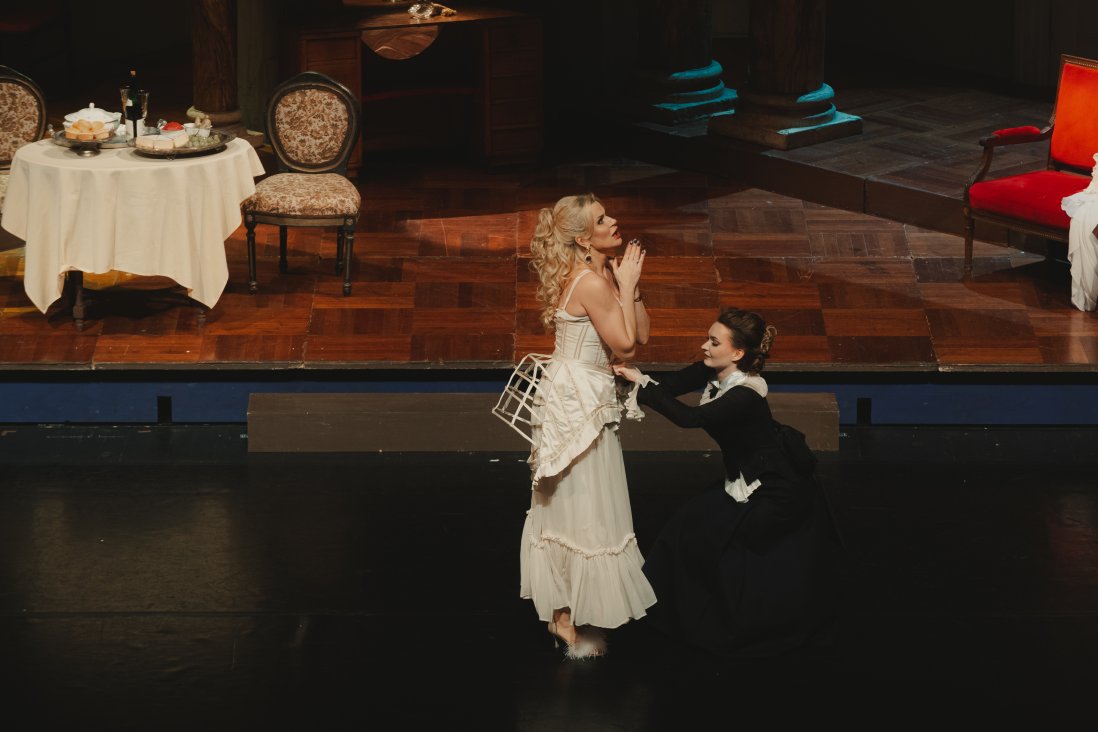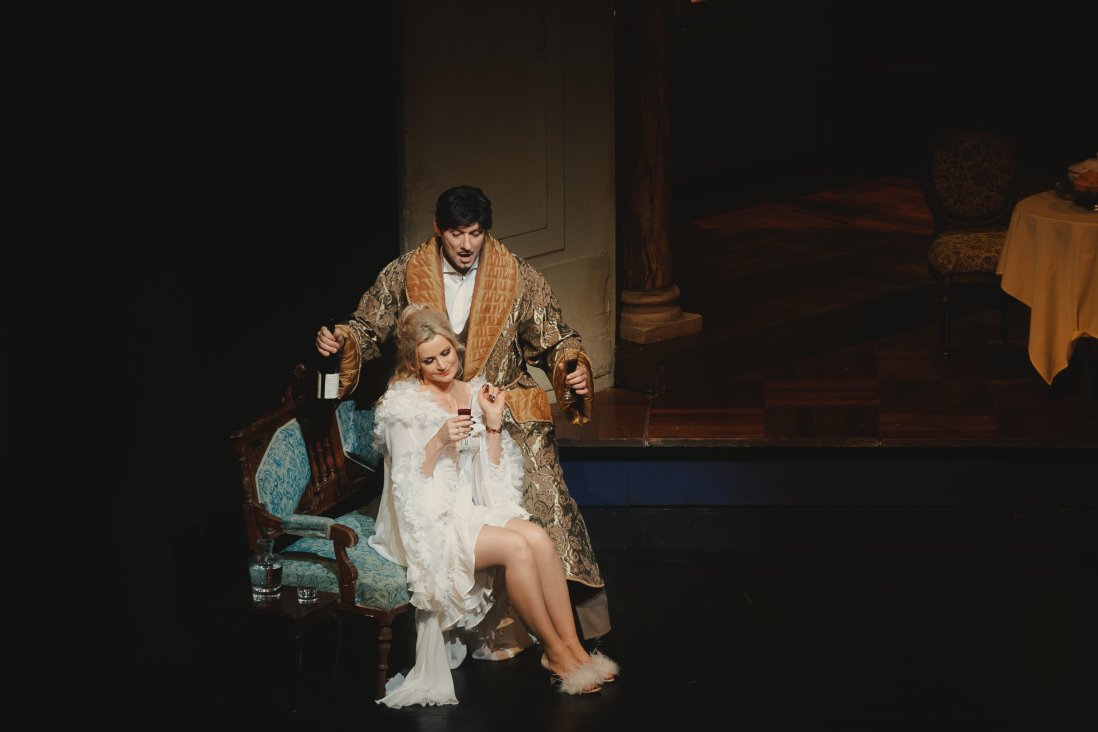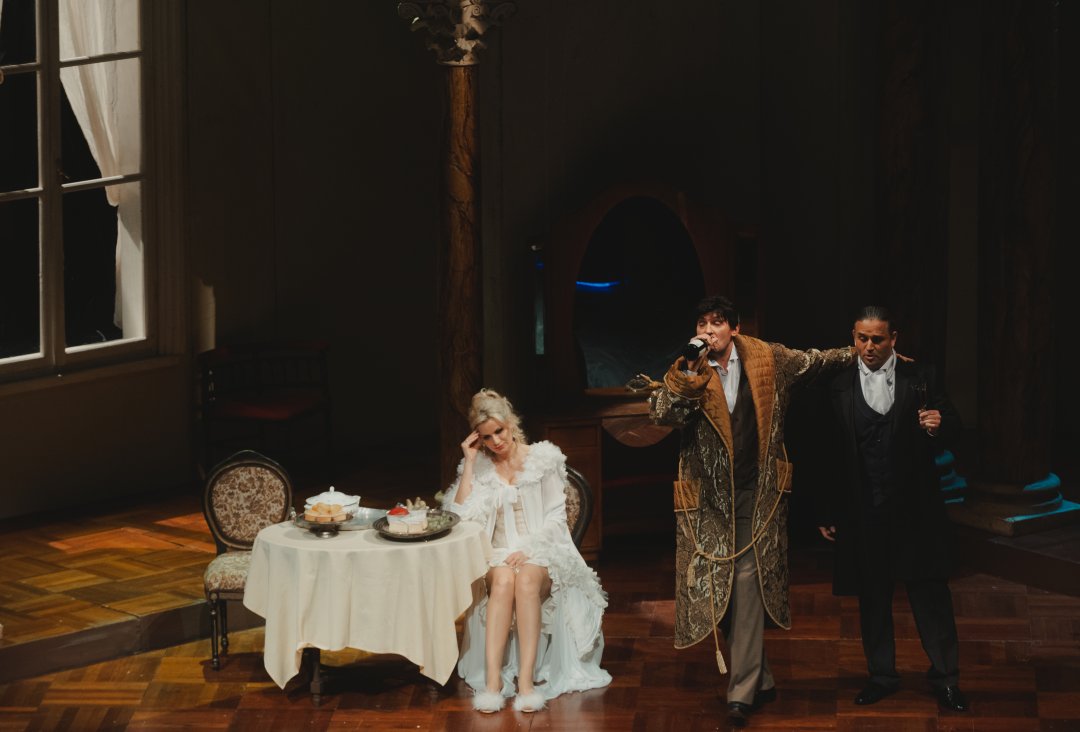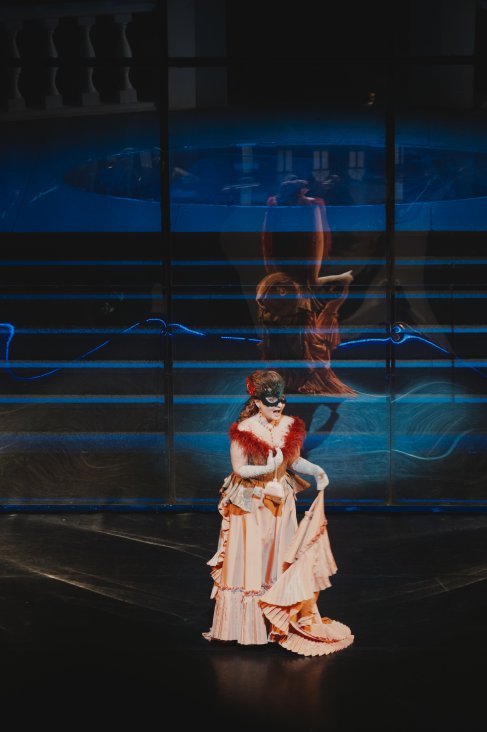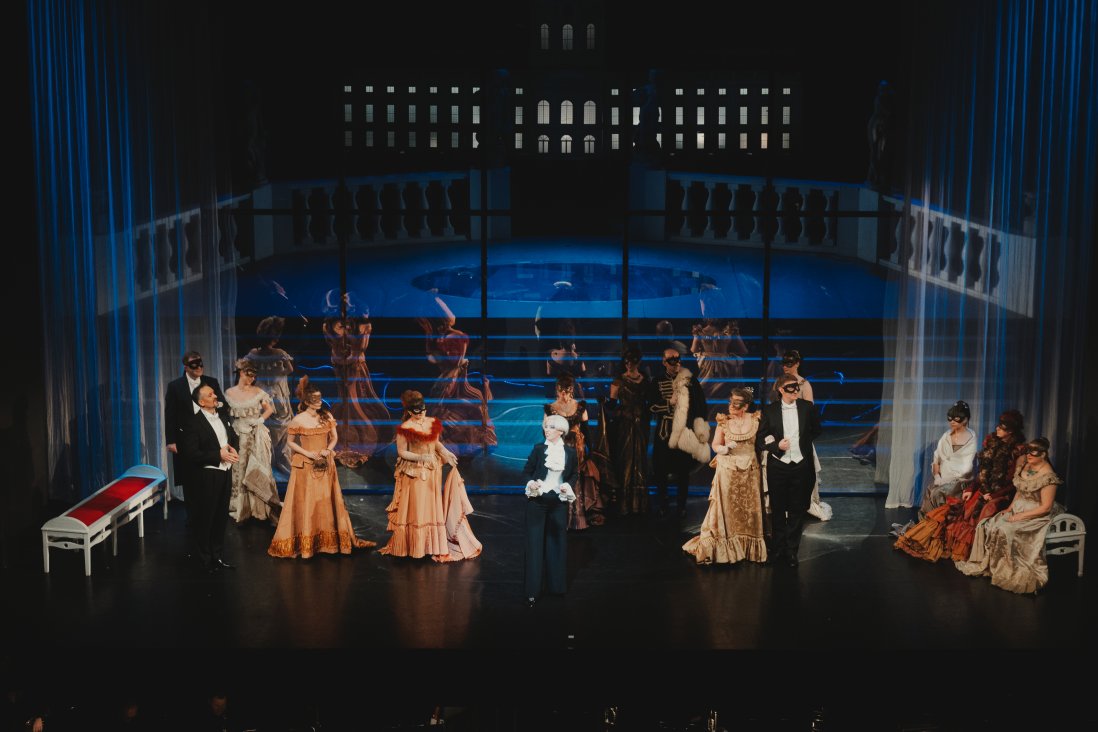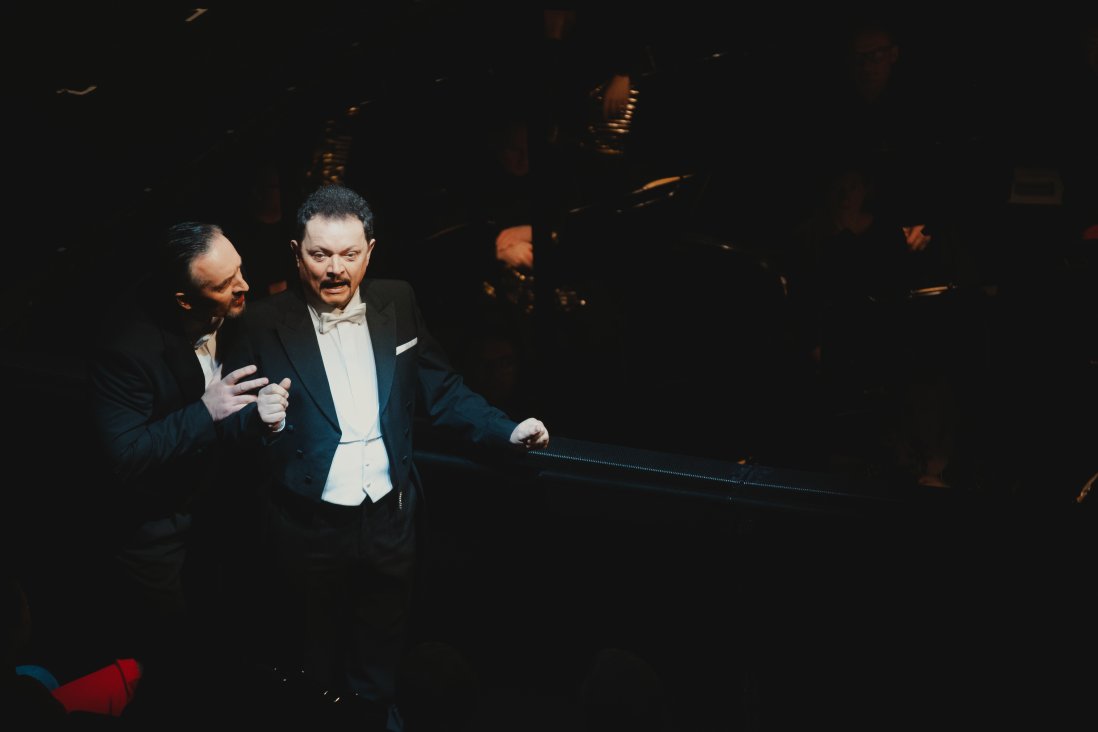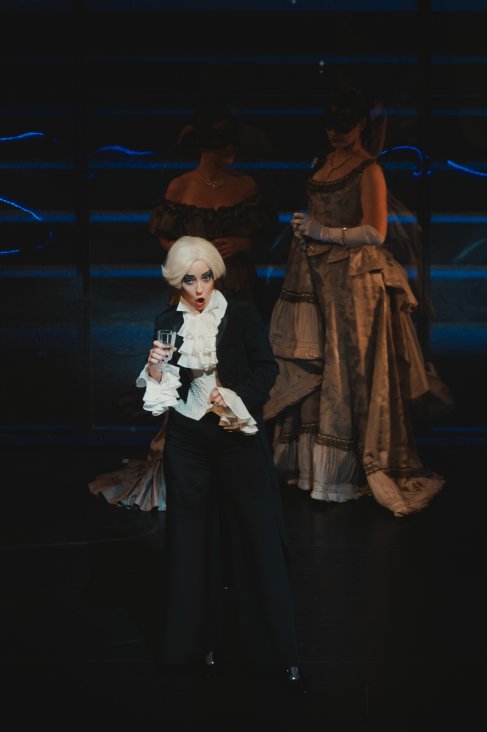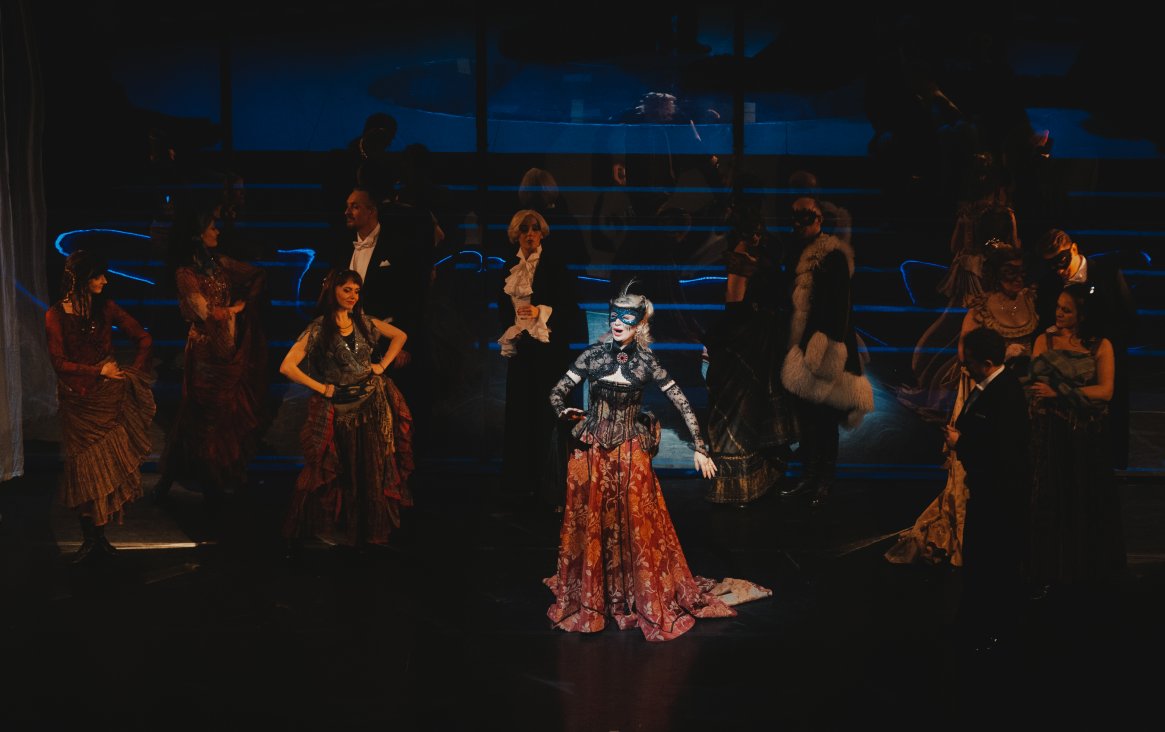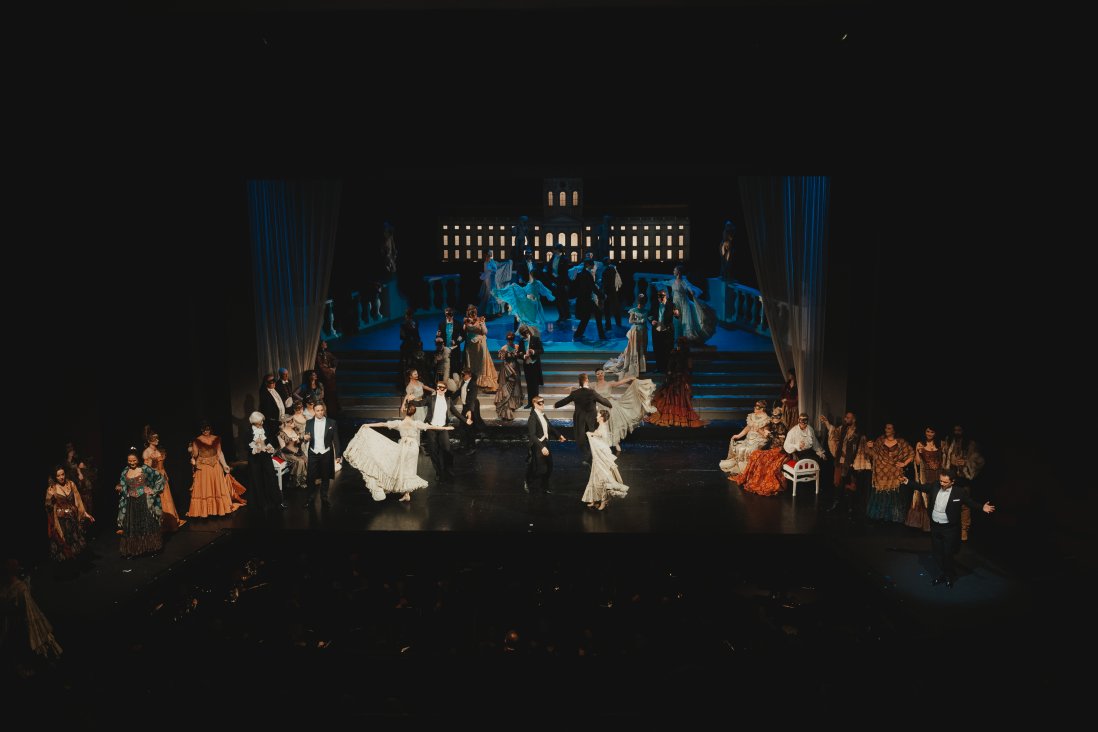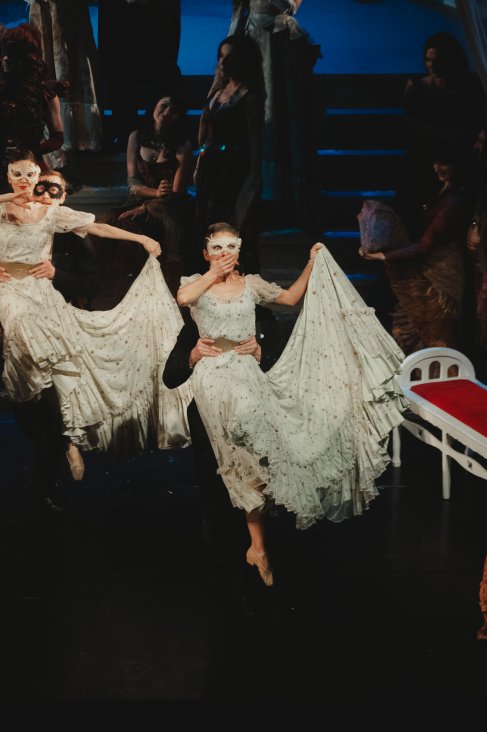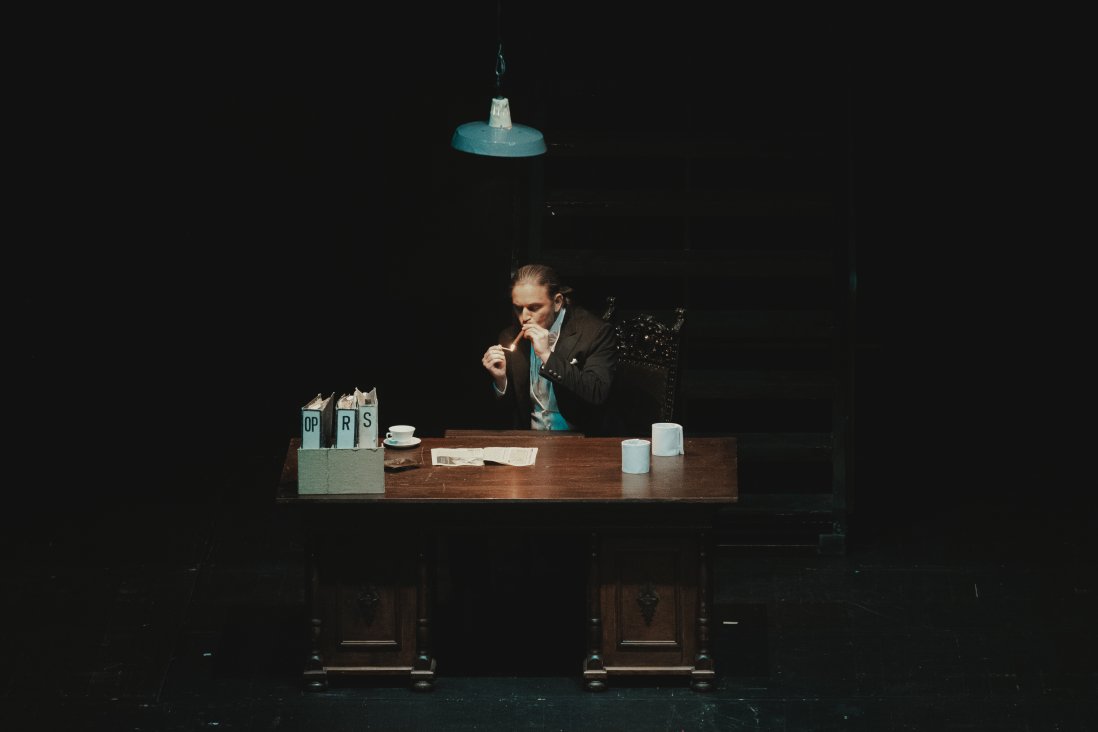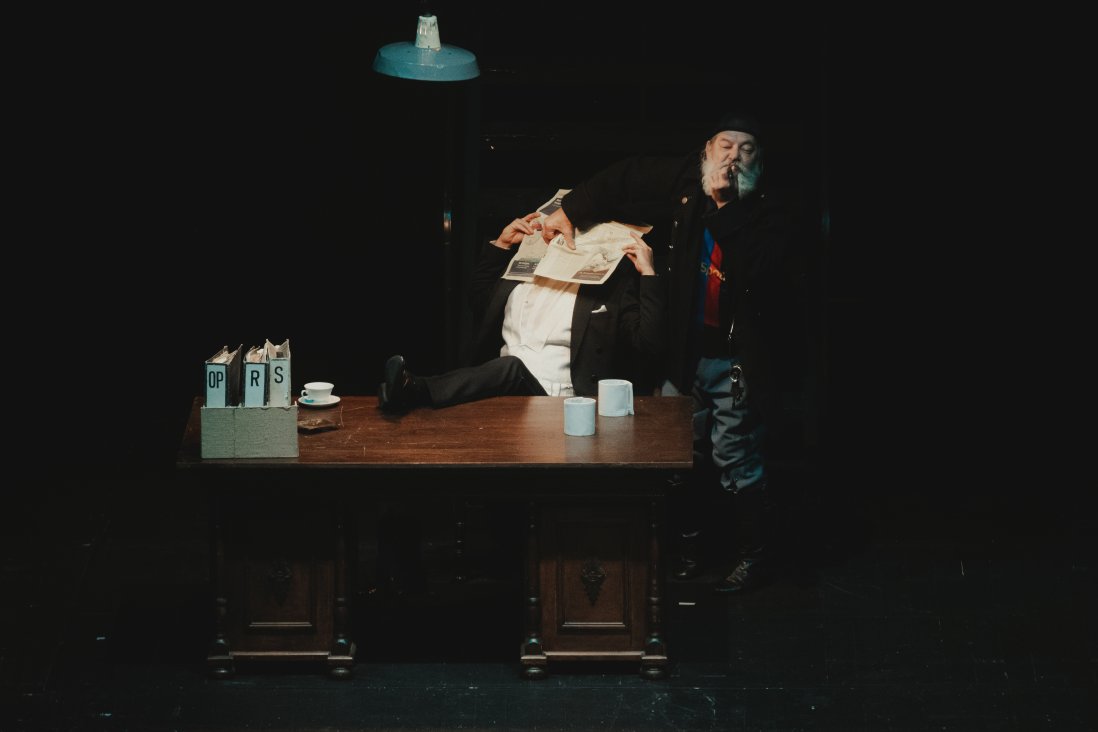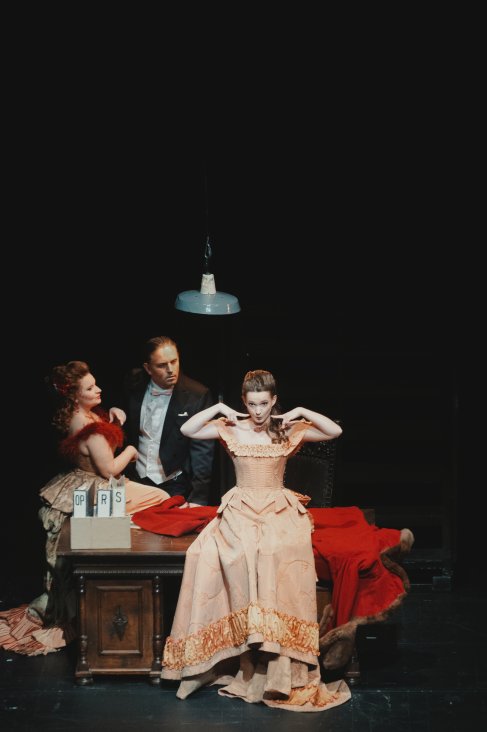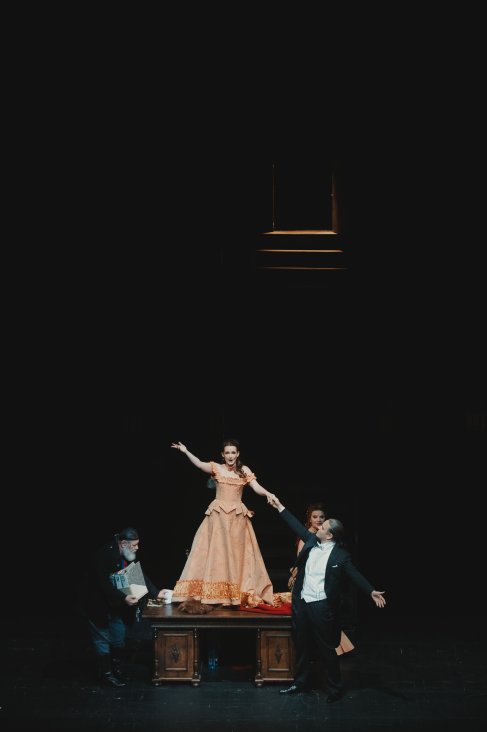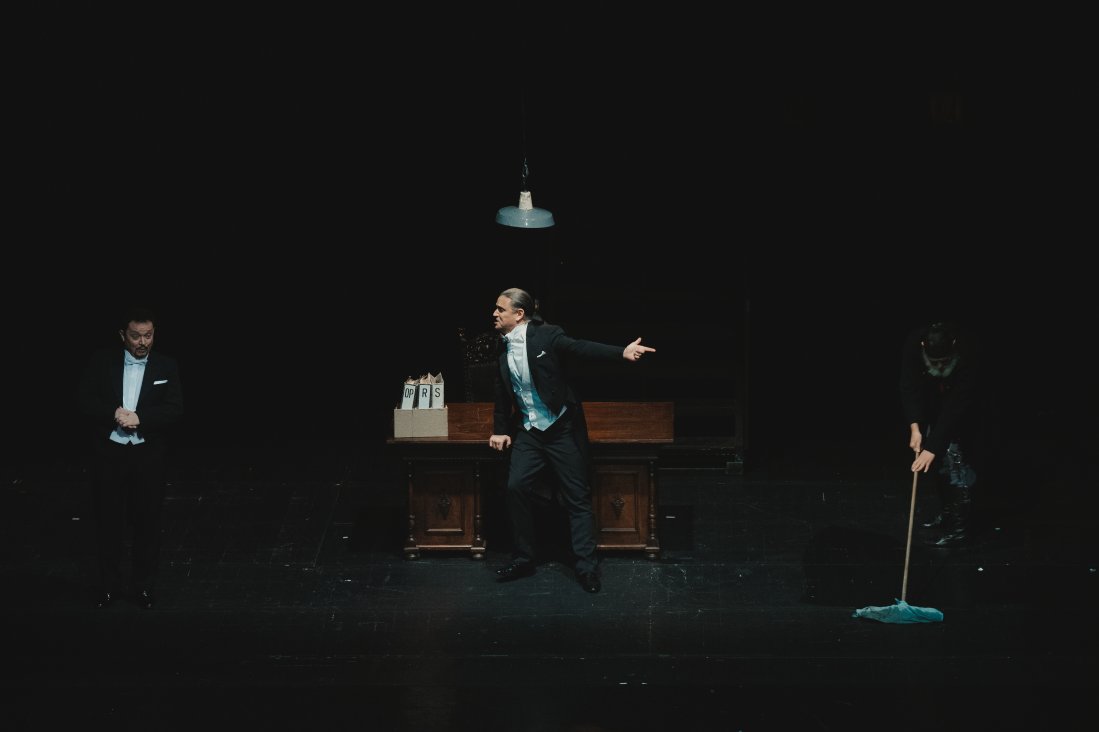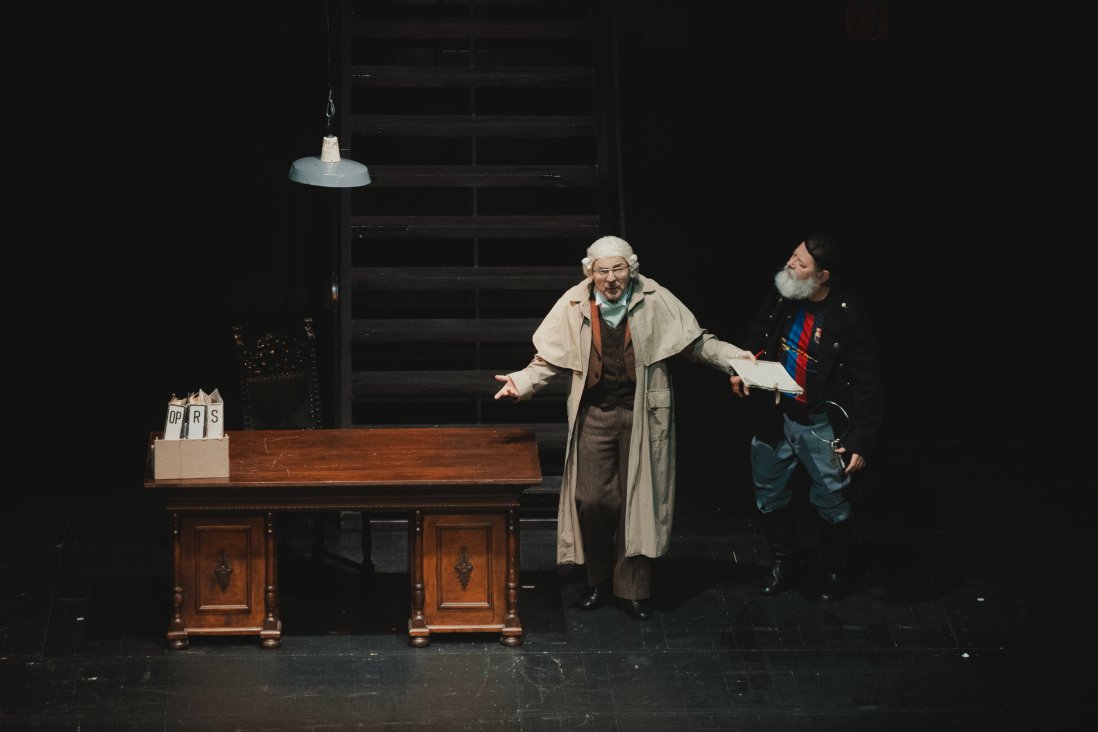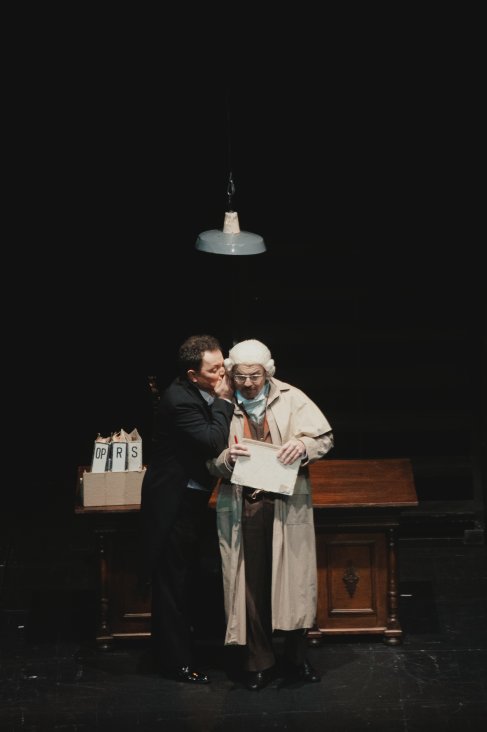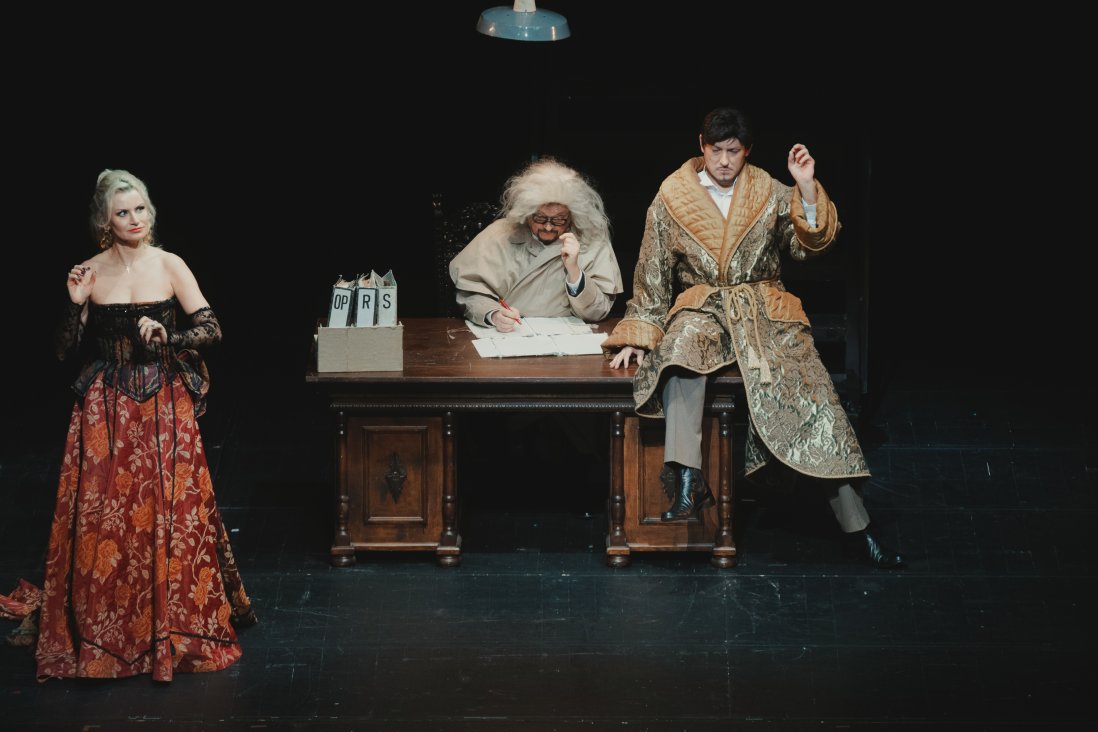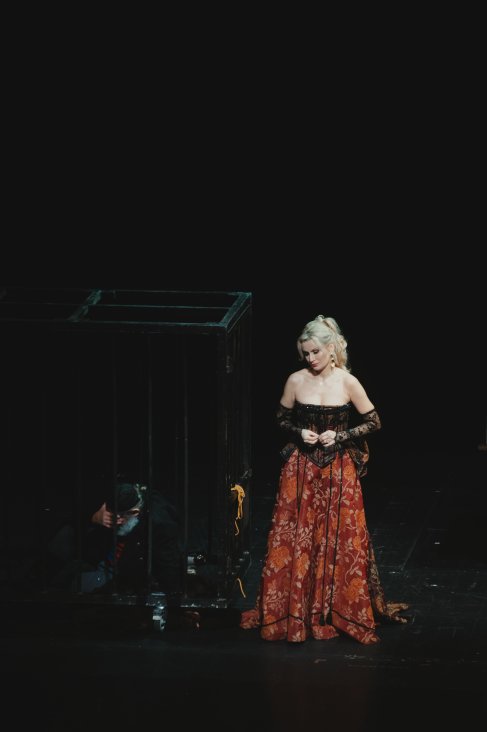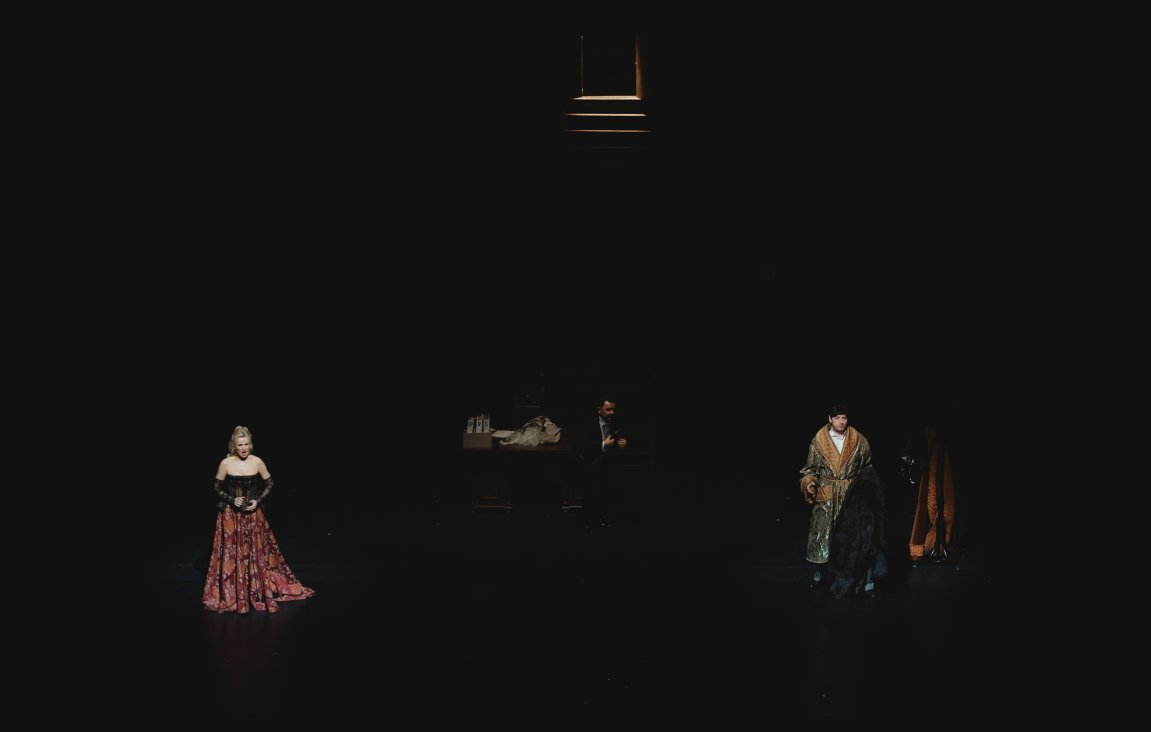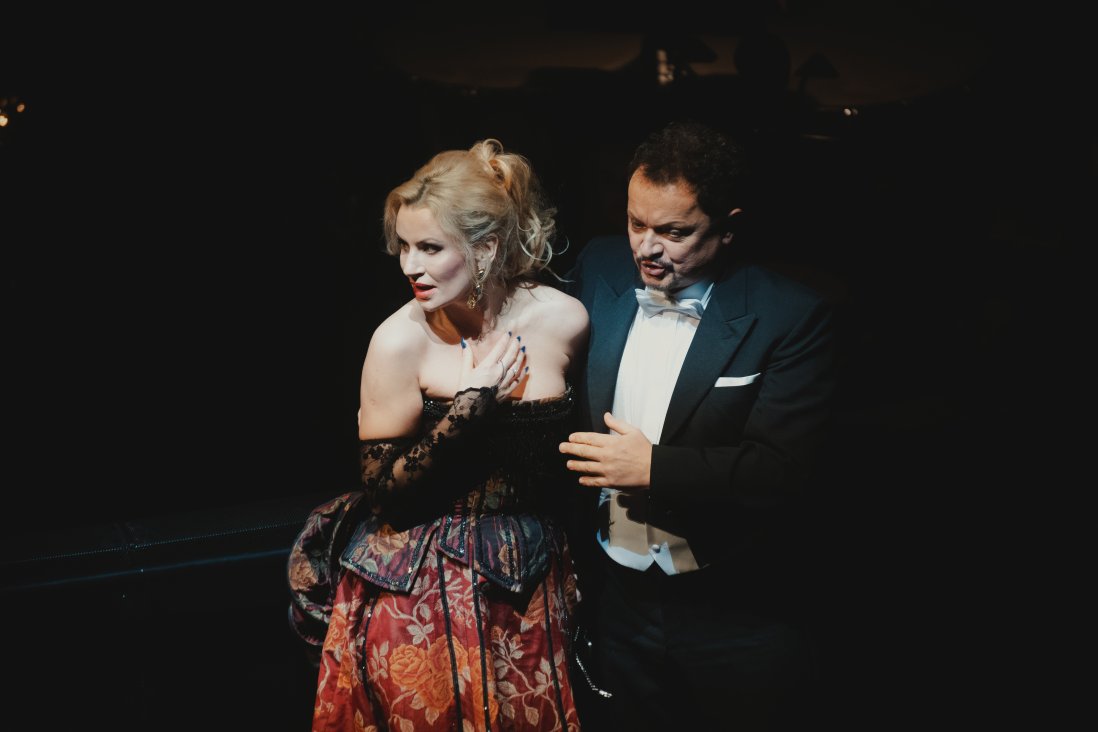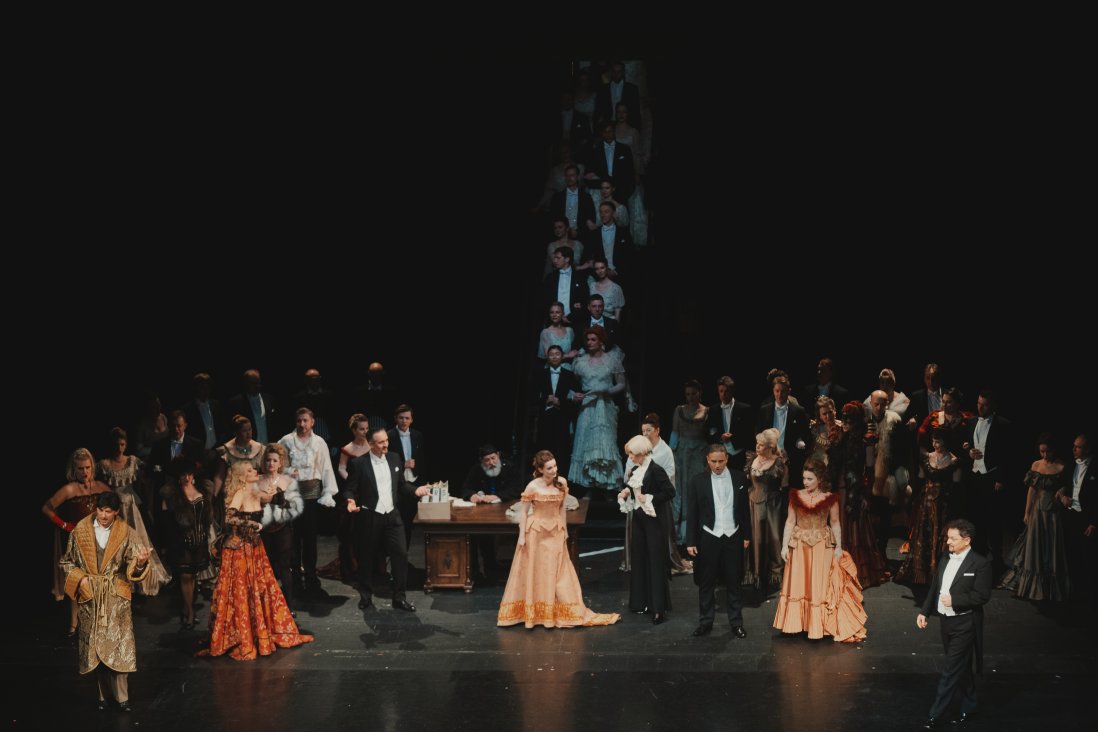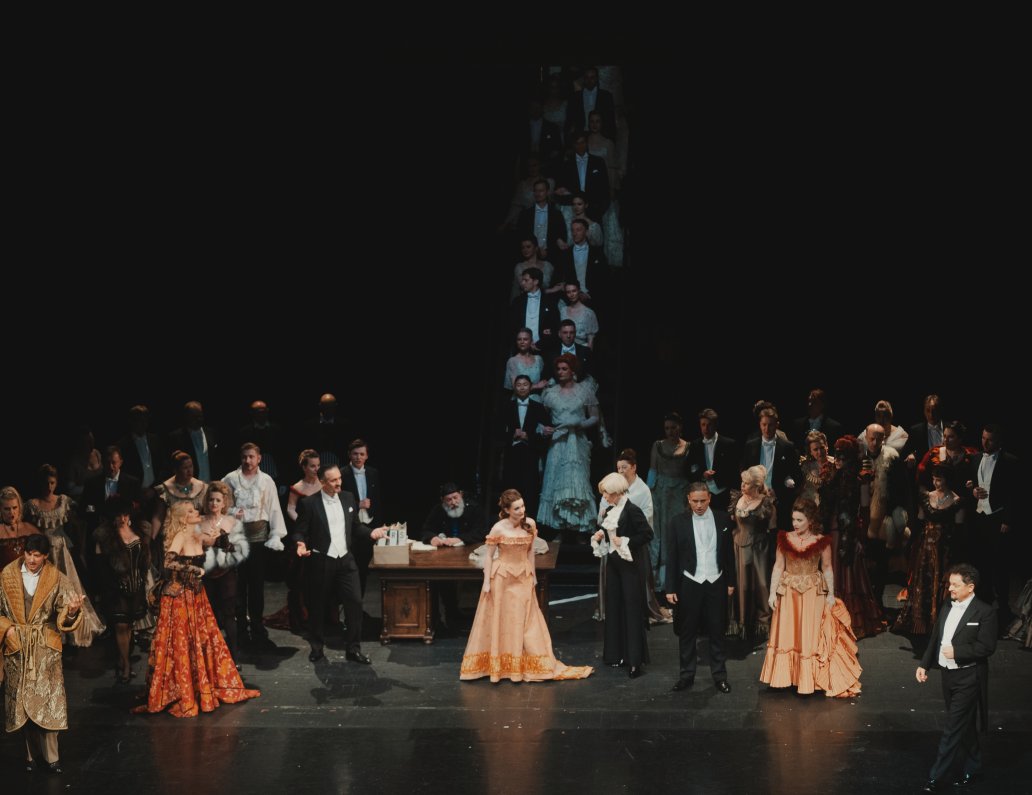
Operetta
The Bat
Operetta in three acts
Johann Strauss
Janusz Józefowicz
Uwe Theimer
Uwe Theimer
3
hours
10
minutes
details
information
duration
3
hours
10
minutes
|
2
intermissions
composer
Johann Strauss
libretto
Karl Haffner, Richard Genée, translated by Julian Tuwim
World premiere
Vienna, 5 April 1874
Polish premiere
Warsaw, 6 September 1877
premiere
18, 19 December 2005, The Stage at the J. Słowacki Theater
premiere at the Krakow Opera
30 November 2009, The Main Stage of Krakow Opera (Revival)
description
A witty operetta with an upper-crust intrigue-driven plot, set in a 19th c. resort by Vienna. Old Vienna is a true lead of this operetta, one of the best and most popular in the world. Composing the work took Johann Strauss, the famous “king of the waltz,” a mere few weeks, and the world premiere turned out to be a huge success. A brilliant comedy of errors with an intriguing libretto in a perfect translation by Julian Tuwim continues to win admirers to this day.
The translation of “Die Fledermaus” by the poet Julian Tuwim inspired the show’s director and choreographer, Janusz Józefowicz, to create a light-hearted, humorous yet spectacular performance. His rendition of the operetta is redolent with the atmosphere of the epoch: it is rich, meticulous and realistic. The costumes, made of silk, lace and velvet and decorated with ostrich plumes, take the audience a hundred years back. The orchestra plays lightly, in keeping with the atmosphere of the show. This Johann Strauss doesn’t sound his age.
The translation of “Die Fledermaus” by the poet Julian Tuwim inspired the show’s director and choreographer, Janusz Józefowicz, to create a light-hearted, humorous yet spectacular performance. His rendition of the operetta is redolent with the atmosphere of the epoch: it is rich, meticulous and realistic. The costumes, made of silk, lace and velvet and decorated with ostrich plumes, take the audience a hundred years back. The orchestra plays lightly, in keeping with the atmosphere of the show. This Johann Strauss doesn’t sound his age.
Poster
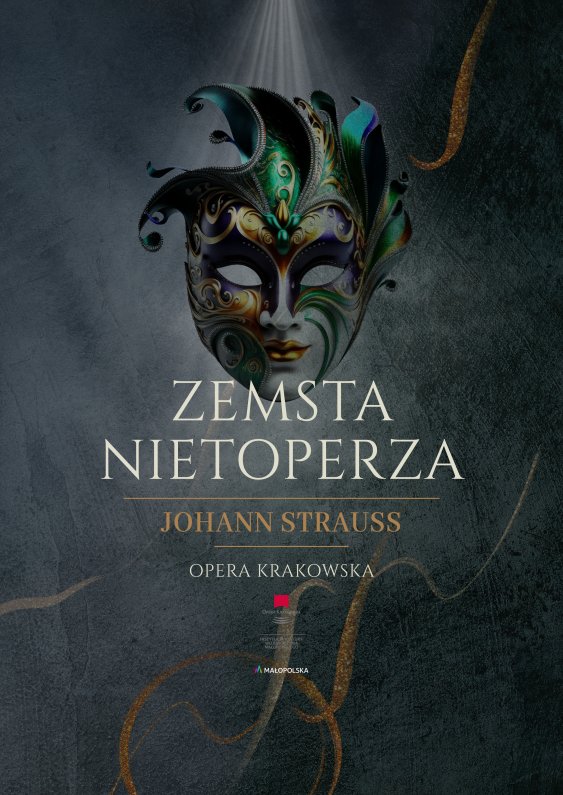
poster by
Marzena Mysłek
producers and cast
producers
Direction and choreography | Janusz Józefowicz
Music Direction | Uwe Theimer
Set Design | Andrzej Woron
Costume Design | Maria Balcerek
Music Direction | Uwe Theimer
Set Design | Andrzej Woron
Costume Design | Maria Balcerek
cast
Gabriel von Eisenstein | Krzysztof Kozarek (8 II), Tomasz Rak (7, 9 II)
Rosalinde | Edyta Piasecka (7, 9 II), Iwona Socha (8 II)
Frank | Sebastian Marszałowicz (8 II), Wołodymyr Pańkiw (7, 9 II)
Prince Orlofsky | Monika Korybalska (7, 9 II), Jan Jakub Monowid (8 II)
Alfred | Adam Sobierajski (7, 9 II), Adam Zdunikowski (8 II)
dr Falke | Adam Szerszeń (8 II), Michał Kutnik (7, 9 II)
dr Blind | Janusz Dębowski (7, 8, 9 II)
Adele | Zuzanna Caban (7, 9 II), Karolina Wieczorek (8 II)
Ida | Zuzanna Caban (7, 9 II), Karolina Wieczorek (8 II)
Frosch | Kajetan Wolniewicz (7, 8, 9 II), Michał Kutnik, Rafał Pawłowski
Postman | Łukasz Zakrzewski (7, 8, 9 II)
Choir, Ballet and Orchestra of the Krakow Opera
Conductor | Marcin Nałęcz-Niesiołowski
Rosalinde | Edyta Piasecka (7, 9 II), Iwona Socha (8 II)
Frank | Sebastian Marszałowicz (8 II), Wołodymyr Pańkiw (7, 9 II)
Prince Orlofsky | Monika Korybalska (7, 9 II), Jan Jakub Monowid (8 II)
Alfred | Adam Sobierajski (7, 9 II), Adam Zdunikowski (8 II)
dr Falke | Adam Szerszeń (8 II), Michał Kutnik (7, 9 II)
dr Blind | Janusz Dębowski (7, 8, 9 II)
Adele | Zuzanna Caban (7, 9 II), Karolina Wieczorek (8 II)
Ida | Zuzanna Caban (7, 9 II), Karolina Wieczorek (8 II)
Frosch | Kajetan Wolniewicz (7, 8, 9 II), Michał Kutnik, Rafał Pawłowski
Postman | Łukasz Zakrzewski (7, 8, 9 II)
Choir, Ballet and Orchestra of the Krakow Opera
Conductor | Marcin Nałęcz-Niesiołowski
ticket
160 zł
120 zł
100 zł
70 zł
60 zł
50 zł
synopsis
The action takes places in a resort near Vienna at the end of the 19th century.
ACT I
At the villa od the banker Gabriel von Eisenstein, Adele, the maid, reads a letter from her sister, dancer Ida. Ida invites her to a ball biven by Prince Gigi Orlovsky later that night. At the time, we can hear a serenade sung in the street by Alfred, firmer Rosalinda's fiance, although presently Rosalinda is married to Eisenstein. Alfred is courting his former lover by the sound of his voice and passionate lyrics. Rosalinda, scared by and unexpected arrival of Alfred and full od concerns that by may be discovered by her husband, promises to meet Alfred in the evening, as they both know that Eisenstein is about to leave for jail for five days, since he was sentenced for hitting a tax collector. Adele, dreaming of the ball at the Prince's place, requests Rosalinda to give her that evening and night off, pretending that she needs to take care od her sick aunt. First, Rosalinda refuses to do so, but later she lets Adele go to the ball. Nobody should rather see the evening visit by Alfred.
After a court trial, Eisenstein is coming home with his lawyer Blind. As a result of the lawyer's incompetence and Eisenstein's agitation, the accused was sentenced for three more days for contempt od court. And it is only hours before he has to report to do his time... His friend, Dr. Falke tries to cheer Eisenstein up. He advises Eisenstein to go to jail rather later in the morning, after attending Prince Gigi's ball, without telling his wife naturally. Dr. Falke finds it easy to perduade his friend.
Although Rosalinda is surprised that, her husband goes to jail in a tuxedo, top hat and patent leather shoes, Eisenstein quotes a gentlemen's statement: “althought my fate is dark, my jacket is white”. He leaves, followed by Adele, and then Alfred arrives. Undressed Rosalinda and Alfred, dressed in her husband's dressing gown, sit for dinner. Suddenly, an unexpected guest appears: warden Frank wants to escort personally Eisenstein to jail. Surprised Rosalinda begs Alfred not to compromise her and rather assume the role of her husband. Unwillingly, Alfred agrees to surrender to circumstances, and Frank takes him to jail instead of Eisenstein...
ACT II
An interesting party is gathering at the Prince's place: refined ladies and gentlemen, accompanied by young opera dancers, including Ida and her sister Adele, wearing Rosalinda's dress. Dr. Falke explains to Prince Orlovsky the intrigue in which the doctor involved the group of his friends, trying to take revenge for a practical joke Eisenstein once played on him: after a masquerade, Eisenstein abandoned the intoxicated Falke in a bat costume right in the middle of the Prater Park. The doctor had to walk back home in his disguise, jeered by crowds. Presently, the “bat” decided to catch his friends in a cobweb of a sophisticated intrigue. He had invited to the ball Ida, Adele, the jail warden and... Rosalinda, who appears in a mask pretending to be a Hungarian Countess.
The plot is developing according to plan. Eisenstein assists the attractive Adele, without knowing that he is actually flirting with his own maid, and later he openly woos the lady in a mysterious mask, unaware that she is his wife. Rosalinda patiently accepts her husband's courting, and she succeeds in taking away his beautiful watch from him.
The party continues, although two persons must leave the ball at dawn: warden Frank and Eisenstein, who made friends at the ball, without knowing their true identities. Presently, they are heading to the same place: the former to work and the latter to do his time.
ACT III
There is only one prisoner in jail: merry Alfred and his tipsy guard, Frosch. Warden Frank arrives after the ball, followed by Ida and Adele. Frank had revealed his identity to the ladies and promised to help them in their theatre careers, and since Adele wanted to become an actress, she wanted to make use of the offer immediately.
Frank receives the two ladies wholeheartedly, but he must hide them right away in a free jail cell when Eisenstein appears. Both gentlemen are surprised to see each other: once they clarify to each other who they are, they are even more astonished: the warden explains that he picked up Eisenstein himself to bring him to jail from his home where he had met him sitting in a dressing gown with his wife. Then, lawyer Blind comes. Eisenstein, trying to guess who is hiding under his name, disguises as a court clerk and, together with Blind, begins to question Alfred. Of course, he quickly finds out what has happened and accuses his wife Rosalinda of betrayal when she arrives to arrange for Alfred's release. Rosalinda and Alfred cannot hide away their sweet tête-à-tête anymore, but Rosalinda accuses then her husband of false appearance and betrayal, presenting the watch taken away from him at the ball.
Finally Falke comes to clarify the plot arranged as a revenge. Alfred cleverly incorporates his meeting with Rosalinda in the “bat's revenge”, and all ends well. Shocked Eisenstein apologizes to Rosalinda, and he is kindly forgiven, while Adele is promised to be taken care of by both in Prince and Frank.
(Based on L. Kydryński, Przewodnik operowy, PWM, 1994)
ACT I
At the villa od the banker Gabriel von Eisenstein, Adele, the maid, reads a letter from her sister, dancer Ida. Ida invites her to a ball biven by Prince Gigi Orlovsky later that night. At the time, we can hear a serenade sung in the street by Alfred, firmer Rosalinda's fiance, although presently Rosalinda is married to Eisenstein. Alfred is courting his former lover by the sound of his voice and passionate lyrics. Rosalinda, scared by and unexpected arrival of Alfred and full od concerns that by may be discovered by her husband, promises to meet Alfred in the evening, as they both know that Eisenstein is about to leave for jail for five days, since he was sentenced for hitting a tax collector. Adele, dreaming of the ball at the Prince's place, requests Rosalinda to give her that evening and night off, pretending that she needs to take care od her sick aunt. First, Rosalinda refuses to do so, but later she lets Adele go to the ball. Nobody should rather see the evening visit by Alfred.
After a court trial, Eisenstein is coming home with his lawyer Blind. As a result of the lawyer's incompetence and Eisenstein's agitation, the accused was sentenced for three more days for contempt od court. And it is only hours before he has to report to do his time... His friend, Dr. Falke tries to cheer Eisenstein up. He advises Eisenstein to go to jail rather later in the morning, after attending Prince Gigi's ball, without telling his wife naturally. Dr. Falke finds it easy to perduade his friend.
Although Rosalinda is surprised that, her husband goes to jail in a tuxedo, top hat and patent leather shoes, Eisenstein quotes a gentlemen's statement: “althought my fate is dark, my jacket is white”. He leaves, followed by Adele, and then Alfred arrives. Undressed Rosalinda and Alfred, dressed in her husband's dressing gown, sit for dinner. Suddenly, an unexpected guest appears: warden Frank wants to escort personally Eisenstein to jail. Surprised Rosalinda begs Alfred not to compromise her and rather assume the role of her husband. Unwillingly, Alfred agrees to surrender to circumstances, and Frank takes him to jail instead of Eisenstein...
ACT II
An interesting party is gathering at the Prince's place: refined ladies and gentlemen, accompanied by young opera dancers, including Ida and her sister Adele, wearing Rosalinda's dress. Dr. Falke explains to Prince Orlovsky the intrigue in which the doctor involved the group of his friends, trying to take revenge for a practical joke Eisenstein once played on him: after a masquerade, Eisenstein abandoned the intoxicated Falke in a bat costume right in the middle of the Prater Park. The doctor had to walk back home in his disguise, jeered by crowds. Presently, the “bat” decided to catch his friends in a cobweb of a sophisticated intrigue. He had invited to the ball Ida, Adele, the jail warden and... Rosalinda, who appears in a mask pretending to be a Hungarian Countess.
The plot is developing according to plan. Eisenstein assists the attractive Adele, without knowing that he is actually flirting with his own maid, and later he openly woos the lady in a mysterious mask, unaware that she is his wife. Rosalinda patiently accepts her husband's courting, and she succeeds in taking away his beautiful watch from him.
The party continues, although two persons must leave the ball at dawn: warden Frank and Eisenstein, who made friends at the ball, without knowing their true identities. Presently, they are heading to the same place: the former to work and the latter to do his time.
ACT III
There is only one prisoner in jail: merry Alfred and his tipsy guard, Frosch. Warden Frank arrives after the ball, followed by Ida and Adele. Frank had revealed his identity to the ladies and promised to help them in their theatre careers, and since Adele wanted to become an actress, she wanted to make use of the offer immediately.
Frank receives the two ladies wholeheartedly, but he must hide them right away in a free jail cell when Eisenstein appears. Both gentlemen are surprised to see each other: once they clarify to each other who they are, they are even more astonished: the warden explains that he picked up Eisenstein himself to bring him to jail from his home where he had met him sitting in a dressing gown with his wife. Then, lawyer Blind comes. Eisenstein, trying to guess who is hiding under his name, disguises as a court clerk and, together with Blind, begins to question Alfred. Of course, he quickly finds out what has happened and accuses his wife Rosalinda of betrayal when she arrives to arrange for Alfred's release. Rosalinda and Alfred cannot hide away their sweet tête-à-tête anymore, but Rosalinda accuses then her husband of false appearance and betrayal, presenting the watch taken away from him at the ball.
Finally Falke comes to clarify the plot arranged as a revenge. Alfred cleverly incorporates his meeting with Rosalinda in the “bat's revenge”, and all ends well. Shocked Eisenstein apologizes to Rosalinda, and he is kindly forgiven, while Adele is promised to be taken care of by both in Prince and Frank.
(Based on L. Kydryński, Przewodnik operowy, PWM, 1994)
